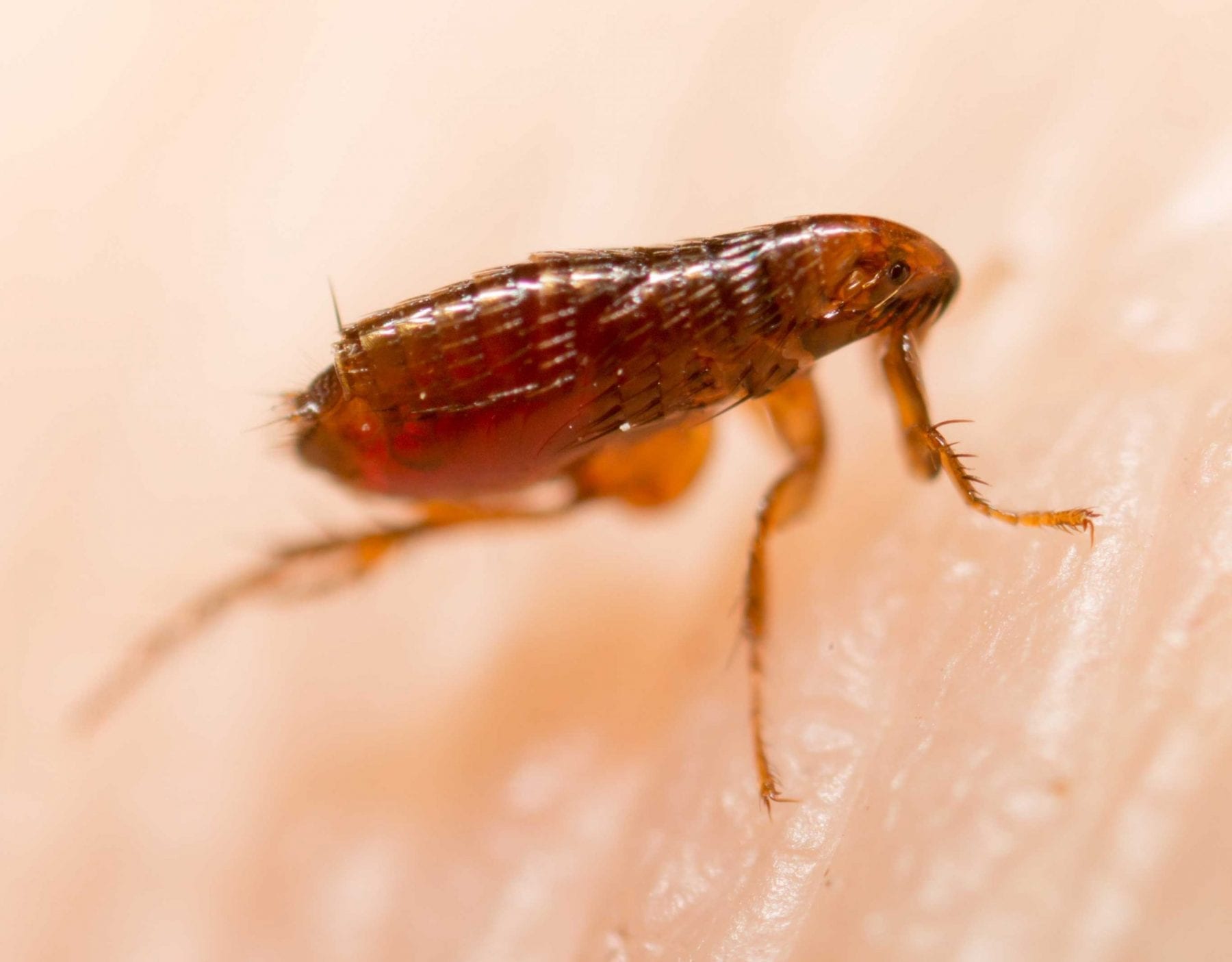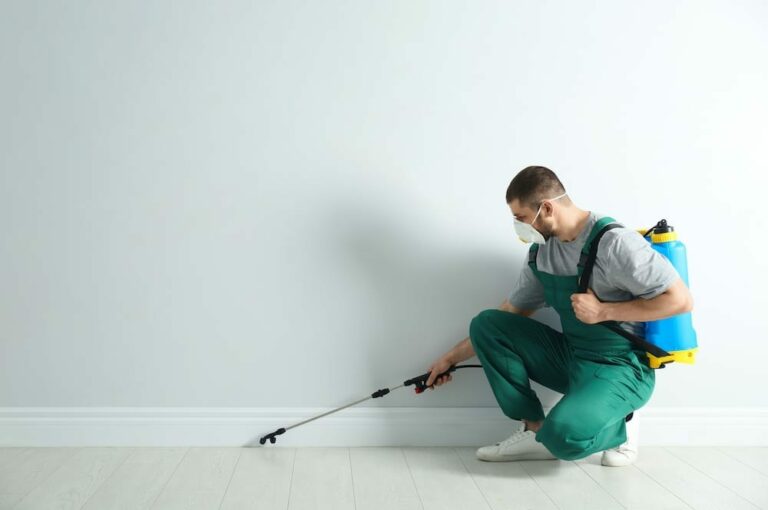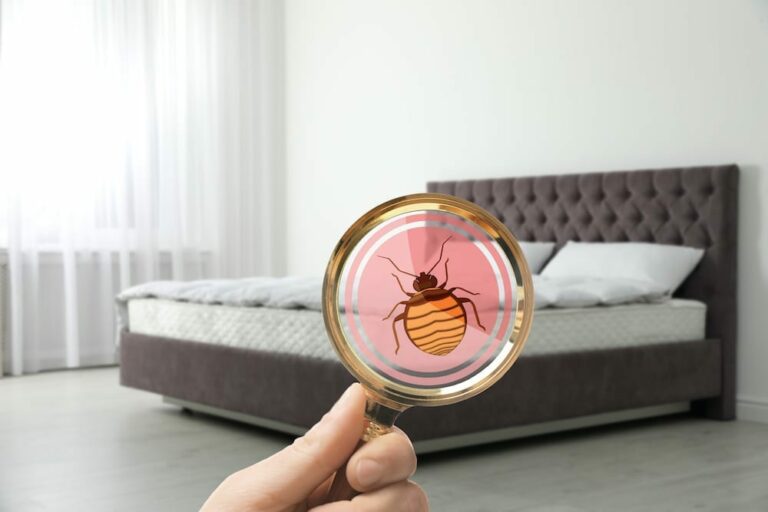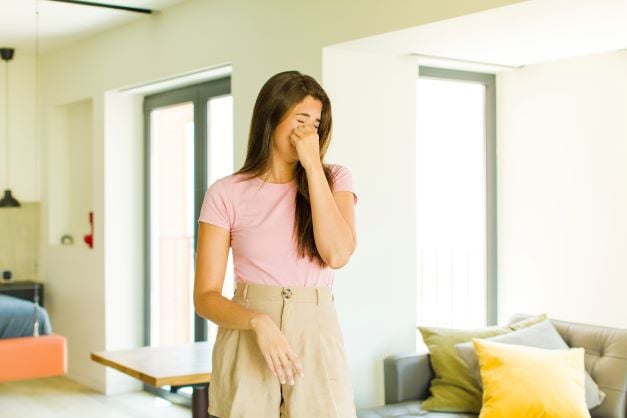Bed Bug Bites vs. Flea Bites
Waking up with itchy bites is never fun, and it’s even worse when you don’t know where (or what) they’re from. When you wake up with red, itchy bites on your body, your mind might jump to bed bugs, but that’s not necessarily the case. There are a variety of pests that could be nibbling on you in the middle of the night, including spiders and fleas. You can find information on how to tell a bed bug bite from a spider bite here. Read on for information on how to tell the difference between flea bites and bed bug bites.
Why Do Bed Bugs Bite?
In short, bed bugs bite us for survival, because we are their source of food. The tiny vampire bugs drink our blood at night and leave small, itchy bites in their wake. This might sound grisly, but rest assured that there are virtually no serious health risks from bed bug bites. In rare cases, an adult might end up with iron-deficiency anemia as a result of a bed bug bite, but in general, they’re nothing to worry about as far as health risks go. Bed bugs like to feed when we’re still and quiet, which explains why the little apple seed-sized pests come out at night- when we’re sleeping, we’re easy prey.
Why Do Fleas Bite?
Fleas actually bite for the same reason as bed bugs do- for food. They feed on blood as well, but humans are not their first choice for a snack. Fleas prefer animals such as dogs or cats, however, if those animals are not available, we are the next best option. Similar to bed bug bites, they do not pose a serious risk to your health, but can be annoying. Fleas tend to go for people with more body hair, as this provides more places for them to hang out and hide, and it provides a surface that’s similar to the ones they prefer on cats and dogs.
What’s The Difference Between Their Bites?
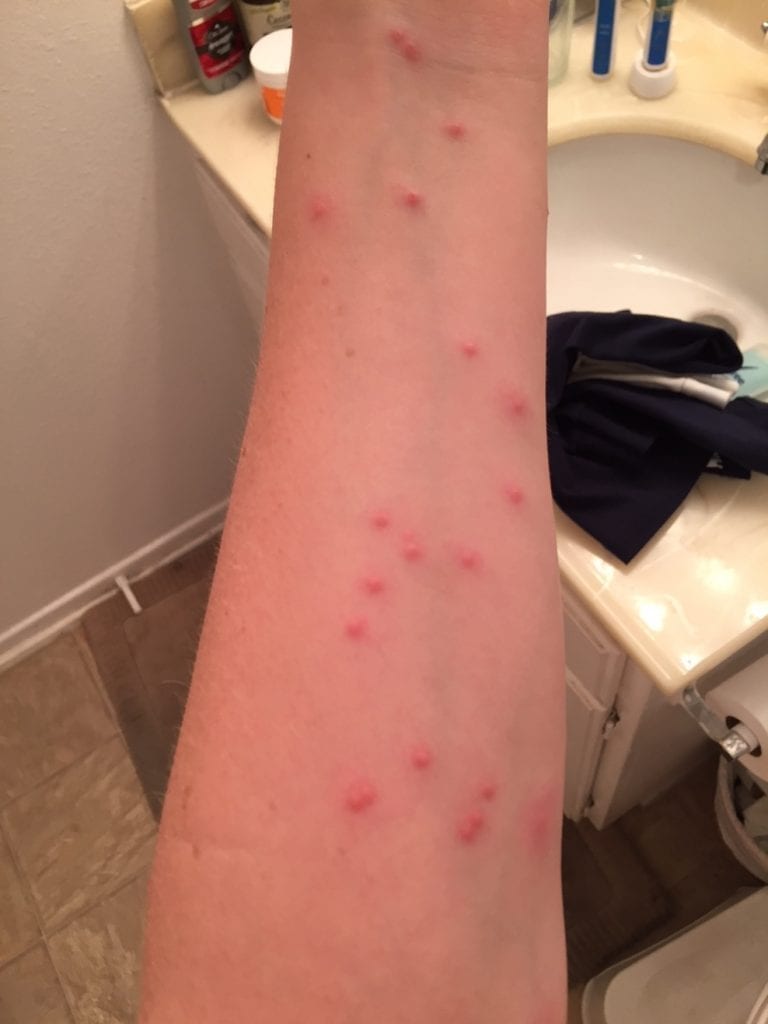
Bed bug bites will typically appear in a line on your skin and will usually swell more than flea bites do, though they take longer to swell up (24 to 48 hours after the initial bite). They’re itchy and red, and they usually appear on your upper body, specifically your hands, neck, and arms. Flea bites, on the other hand, appear in groups rather than lines. They’re itchy as well, but flea bites usually appear on your lower body, especially your feet and ankles, and even behind your knee. Flea bites swell more rapidly than bed bug bites do (within an hour of the bite), but they’re generally less inflamed. They scab more easily than bed bug bites. Flea bites are very small with a central red spot- this is where the puncture happens.
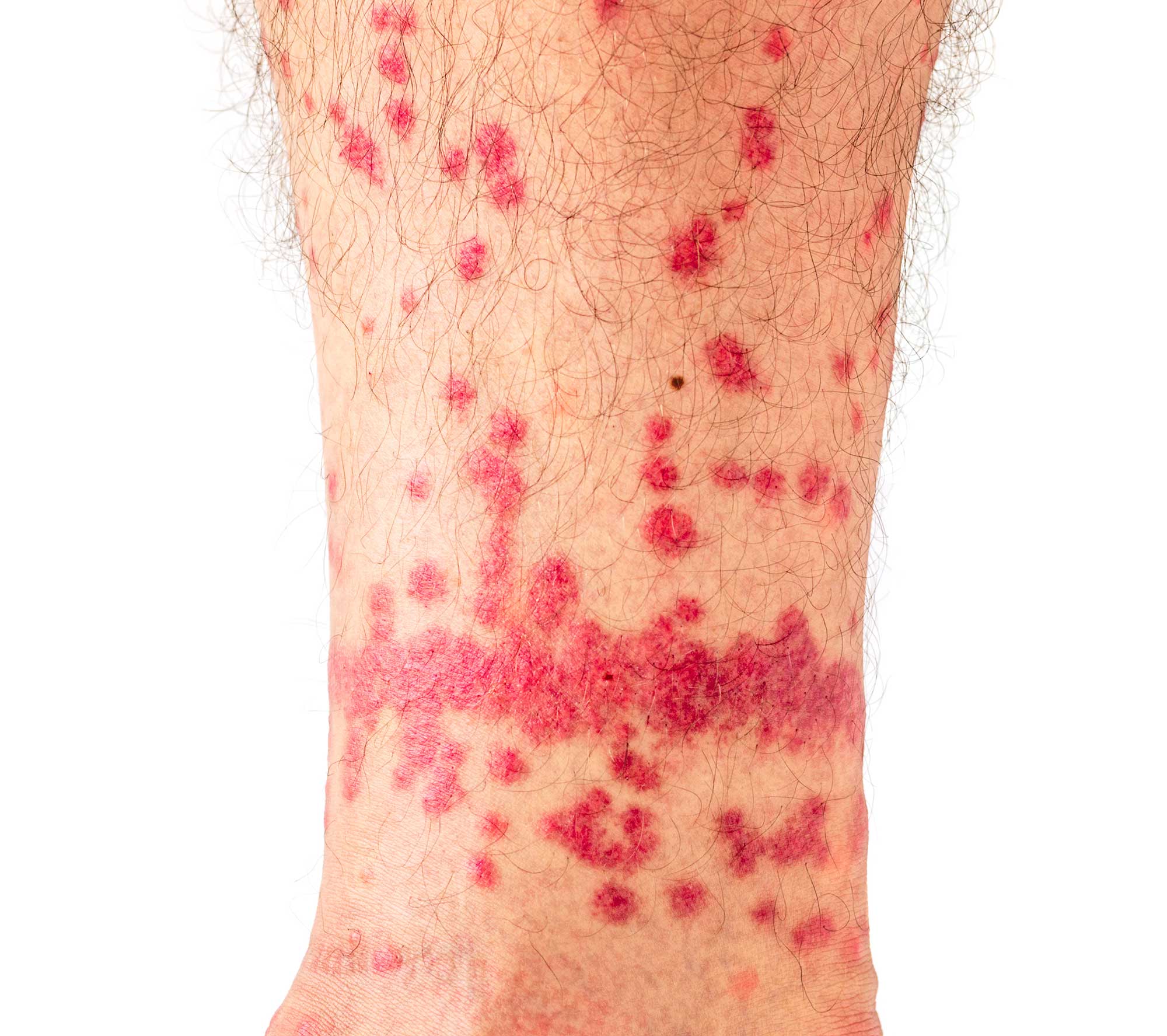
Are There Other Signs of Fleas I Should Watch For?
If you notice bites when you wake up and suspect that you have a flea problem, examining your pet is the most reliable way to confirm that suspicion. If you notice your pet scratching at themselves more often than usual or biting or chewing at their skin, you may want to examine them further. Hair loss, scabbing, and live bugs crawling through their fur are all indications of a flea problem that you should try to address immediately.
What About Signs of Bed Bugs?
As for bed bugs, signs include dark rust-colored or black stains on furniture or other surfaces, live bugs about the size of an apple seed, and shells left behind from bed bugs shedding their skin. If you see any of these, call a pest control company right away. Don’t try to fix the problem with foggers or home chemical treatments.
What Should I Do About Fleas?
If you wake up with flea bites, should you be worried? First, you should try to identify the source of the fleas. If you have a pet, it’s likely that they may have accidentally brought fleas in from playing outside, or something of the sort. If that’s the case, you should treat the animal first with a flea comb and shampoo, then look into treating your house for fleas. Check with your veterinarian to see what treatment they recommend for your pet, and remember to treat all of your pets, not just one- other pets could “catch” the fleas from the one who initially brought them in. Vacuuming can help clear many of the fleas, but you should consult a pest control company.
How Do I Get Rid of Bed Bugs?
The best way to get rid of bed bugs is with heat treatment, which involves heating your residence to a high temperature- over 120 degrees- and leaving it at that temperature for several hours. Bed bugs can’t survive extreme temperatures for very long, so this treatment is very effective. Heat treatment is more effective than chemical treatment because unlike chemicals, you do not have to target individual bugs as carefully. Most chemical treatments need to be applied directly to the bugs, so if you miss one or two and they start reproducing, you’re back to square one. Heat, on the other hand, permeates even the smallest spaces and reaches every last bug.
Are You Being Bitten?
As the world changes rapidly around us, many things are confusing and scary. We want you to know that the team at Bed Bug Barbeque is still here for you in these unprecedented times. If you think you have bed bugs or are interested in a home heat sanitation treatment, contact Bed Bug Barbeque, LLC in Lakewood, Ohio! We use heat treatment to eradicate bed bugs and we offer entire home sanitation heat treatments. This safe, effective treatment is completed in less than 12 hours, and Bed Bug Barbeque, LLC offers a 60-day warranty for you to verify for yourself that your bed bugs are fully eradicated. Though we are currently closed in compliance with Ohio’s Stay at Home Order, you can still contact Bed Bug Barbeque, LLC today for a FREE quote at (216) 221-1227 or through our website, and check out our other bed bug informational resources on identification, prevention, and eradication.

